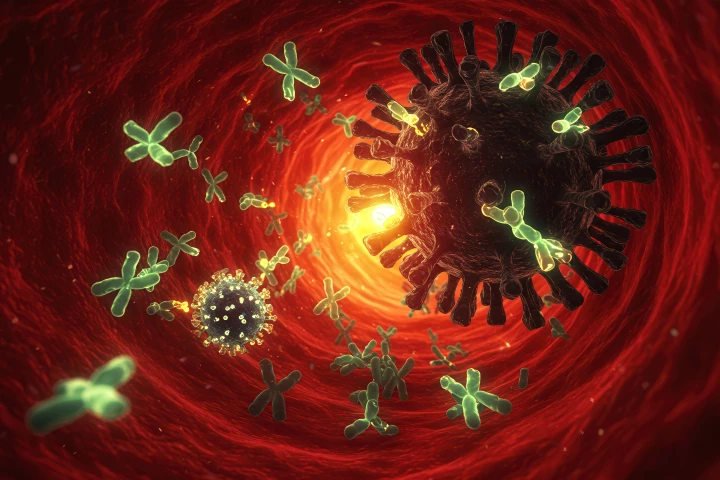Virus
-
Americans are being urged to be extra vigilant, as a new influenza A variant is spreading more rapidly and evading our abilities to fight it off. With more than 110,000 hospitalizations so far, scientists expect this wave to worsen as the season peaks.
-
Scientists have developed a new rapid test for hepatitis C. It is easy to use, highly sensitive, and made for point-of-care places like clinics and community centers. The speed allows clinicians to diagnose and start treatment in the same visit.
-
In a breakthrough study, scientists built a new kind of "super microscope" letting them zoom in on living human cells with incredible detail. This offers a new real time insight into how the flu virus tries to slip inside cells.
-
UC Berkeley’s reusable bacteriophages offer an ecologically friendly method for mining some of the most valuable materials on the planet, including those in a vast range of consumer electronics, green technology, vehicles, weapons, and more.
-
Avian influenza viruses have a gene that makes them incredibly resistant to heat, rendering our body's natural defense system – fever – powerless in fighting infection. In fact, higher temperatures actually help those bird-derived bugs replicate.
-
Scientists have found the clearest evidence yet that Epstein-Barr virus – which nearly all of us carry for life – is directly responsible for hijacking our immune system's cells to cause lupus, a chronic disease that affects up to a million Americans.
-
A humble kitchen spice could pack a powerful antiviral punch. Researchers have found that compounds in cardamom seeds can trigger the body’s virus-detecting systems, potentially paving the way for natural cold and flu treatments.
-
Even in death, cells leave a trace. Scientists have discovered a microscopic “Footprint of Death” that not only helps the immune system clean up but can also give viruses a new way to spread infection.
-
A groundbreaking discovery reveals how HIV integrates its genetic material into human DNA, exposing a key viral vulnerability that could lead to new therapies and bring the world closer to a functional HIV cure.
-
Tucked away in the immune systems of a few people across the globe was something extraordinary, a genetic shield against every virus nature could throw at them. Now researchers are trying to turn this discovery into a universal antiviral treatment.
-
For years, we've known UV rays were the main villain behind a common skin cancer. But now, researchers at the NIH have uncovered a shocking twist: the virus Beta-HPV can be the mastermind, directly causing cancer when the immune cells malfunction.
-
Some cancer cells don't die; they go quiet, like seeds lying dormant in the soil. But when the body faces a virus like SARS-CoV-2, the resulting inflammation jolts these silent cells awake, especially in the lungs, giving them a chance to grow and spread.
Load More











